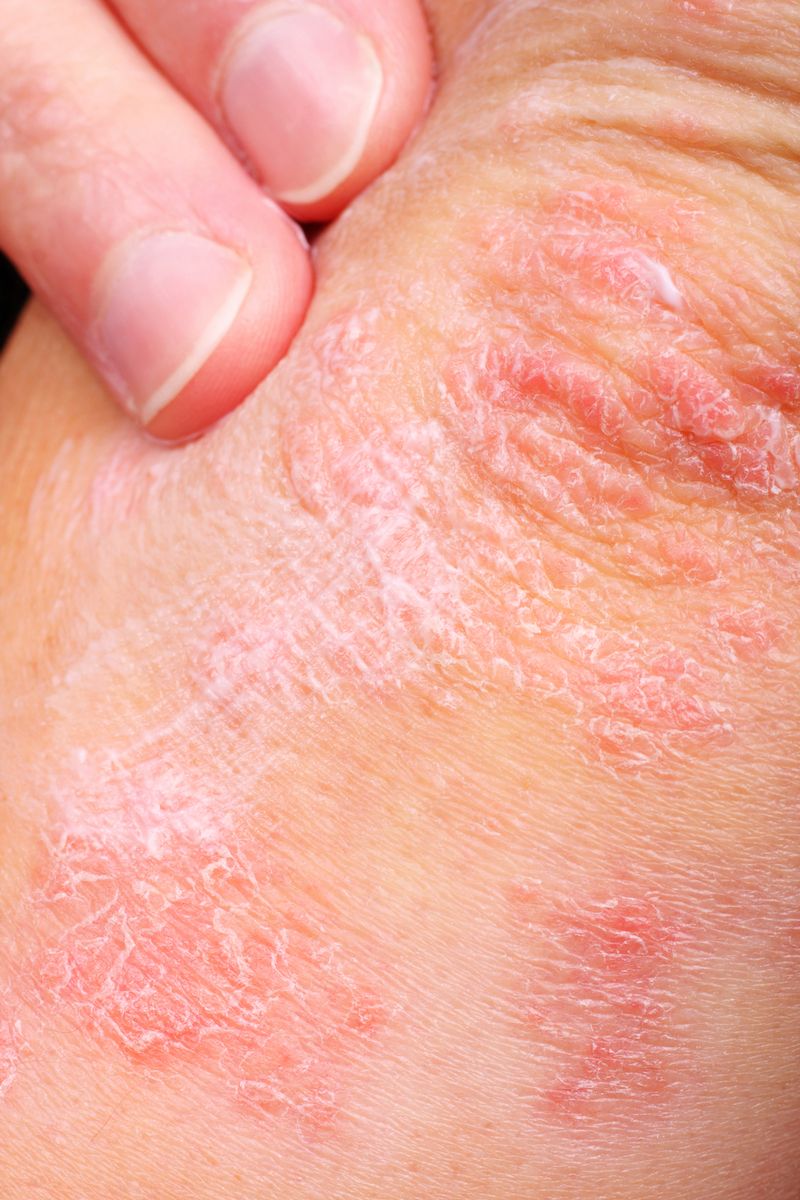- Bone Health
- Immunology
- Hematology
- Respiratory
- Dermatology
- Diabetes
- Gastroenterology
- Neurology
- Oncology
- Ophthalmology
- Rare Disease
- Rheumatology
Secukinumab Found Cost-Effective for Patients With Moderate to Severe Psoriasis
Compared with other biologics frequently used in China for moderate-to-severe psoriasis, secukinumab is the most cost-effective treatment option.
Secukinumab is the most cost-effective treatment option for patients with moderate-to-severe psoriasis compared with other biologics frequently used from the perspective of the Chinese health care system, according to a study from Dermatology and Therapy.
Currently, there are no approved secukinumab (Cosentyx) biosimilars, although some are in development. Bio-Thera Solutions is conducting Phase 3 trials for the clinical development of a secukinumab biosimilar for plaque psoriasis as of September 11, 2023, according to Pharmaceutical Technology.2 The Phase 3 trial was initiated in November 2022, and at the time Bio-Thera Solutions stated that it will file for regulatory approval for all indications of the reference product in the European Union, United Kingdom, China, and United States upon completion of the trial. The patent on the reference product will expire between from 2025 to 2026.3
Patients with moderate-to-severe psoriasis usually need treatment throughout their life, and psoriasis presents a large economic burden on patients and their families in China. The total yearly expenditure because of psoriasis accounts for approximately 20.0% of patients’ income and cumulates into a yearly hospitalization rate of 21.3%, 15.0 days of sick leave, and a 37.0% rate of unemployment.
First, the study evaluated the cost effectiveness of secukinumab compared with other biologics (adalimumab, infliximab, ustekinumab, ixekizumab, guselkumab, and etanercept biosimilar [Yisaipu]) for the treatment of moderate-to-severe plaque psoriasis from the perspective of the Chinese health care system.
patient with psoriasis 993656 Stock Photo at Vecteezy | © Vecteezy

A decision-tree (first year)/Markov model (subsequent years), with a yearly cycle, was implemented over a lifetime. The Psoriasis Area and Severity Index (PASI) response rate at week 16 was utilized for treatment response. Efficacy inputs were collected from a mixed-treatment comparison conducted using randomized controlled trial data.
Other clinical inputs (like adverse events, dropout, and mortality rates), utility weights, and costs were originated from published literature and local Chinese sources. Costs and outcomes were discounted at 5% per annum. Model outcomes contained quality-adjusted life years (QALYs) and incremental cost-effectiveness ratio (ICER). One-way and probabilistic sensitivity analyses were administered to test result robustness.
It was found that secukinumab produced the highest QALYs (12.334) against all comparators at a lifetime cost of ¥231,477 (approximately $31,661) for patients with moderate-to-severe psoriasis. Secukinumab overpowered (higher QALYs at lower costs) all other biologics except ixekizumab in this population. Ixekizumab acquired slightly lower costs (¥228,320 [$31,229]) but obtained lesser QALYs (12.284), compared with secukinumab. So, secukinumab was a cost-effective treatment than ixekizumab at a willingness-to-pay (WTP) threshold of ¥257,094 ($35,164) per QALY acquired.
“In the one-way sensitivity analysis, base-case results were most sensitive to changes in the PASI response at 16 weeks and year 2+ dropout rates,” continued the researchers.
Additionally, the researchers found that secukinumab was a cost-effective treatment option versus adalimumab, infliximab, ustekinumab, ixekizumab, guselkumab, and etanercept biosimilar (Yisapu) among patients with moderate-to-severe psoriasis over a lifetime.
“The results of base-case analysis were most sensitive to changes in the PASI response at 16 weeks and year 2+ dropout rates for all treatment comparisons,” said the researchers.
Results similar to base-case analysis validating the cost-effectiveness of secukinumab were also seen in the alternative scenario analysis.
To the researchers’ knowledge, this is the first comprehensive economic evaluation comparing the costs and benefits (QALYs) linked with secukinumab compared to other commonly used biologics in the Chinese health care setting.
Some limitations were present in this study. The model used short-term efficacy data to project lifetime efficacy, stemming from the network meta-analysis that was limited to week 16 because of crossover of treatment arms past week 12 or week 16. Also, treatment sequencing was present, because the current analysis was restricted to first-line biologic treatment only.
“This cost-effectiveness analysis demonstrated that secukinumab is the most cost-effective treatment option compared with other commonly used biologics (adalimumab, infliximab, ustekinumab, ixekizumab, guselkumab, and Yisaipu) for moderate-to-severe plaque psoriasis in China over a lifetime horizon,” concluded the researchers.
Reference
1. Zhang J, Xia Z, Guo W. et al. Cost-effectiveness of secukinumab versus other biologics in the treatment of moderate-to-severe plaque psoriasis: the Chinese healthcare system perspective. Dermatol Ther (Heidelb) Published online September 23, 2023. doi:10.1007/s13555-023-01041-8
2. Secukinumab biosimilar by bio-thera Solutions for plaque psoriasis (psoriasis vulgaris): likelihood of approval. pharmaceutical technology. Published September 11, 2023. Accessed September 27, 2023. https://www.pharmaceutical-technology.com/data-insights/secukinumab-biosimilar-bio-thera-solutions-plaque-psoriasis-psoriasis-vulgaris-likelihood-of-approval/#:~:text=Secukinumab%20biosimilar%20overview,is%20administered%20through%20subcutaneous%20route
3. Higgins-Dunn N. The top 15 blockbuster patent expirations coming this decade. Fierce Pharma. Published July 12, 2021. Accessed September 27, 2023. https://www.fiercepharma.com/special-report/top-15-blockbuster-patent-expirations-coming-decade
Escaping the Void: All Things Biosimilars With Craig & G
May 4th 2025To close out the Festival of Biologics, Craig Burton and Giuseppe Randazzo from the Association for Accessible Medicines and the Biosimilars Council tackle the current biosimilar landscape and how the industry can emerge from the "biosimilar void."
How AI Can Help Address Cost-Related Nonadherence to Biologic, Biosimilar Treatment
March 9th 2025Despite saving billions, biosimilars still account for only a small share of the biologics market—what's standing in the way of broader adoption and how can artificial intelligence (AI) help change that?
